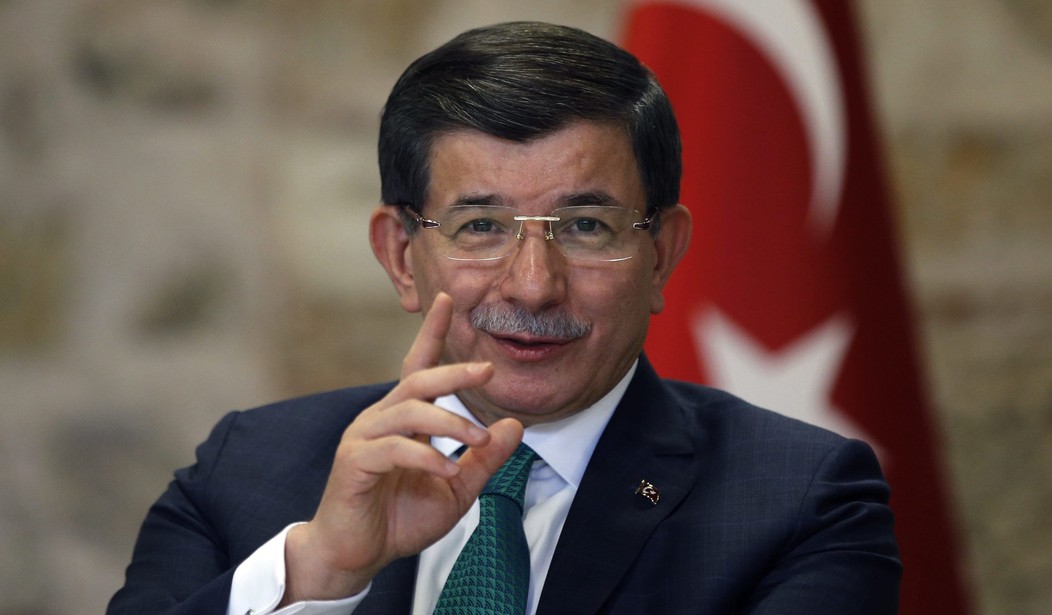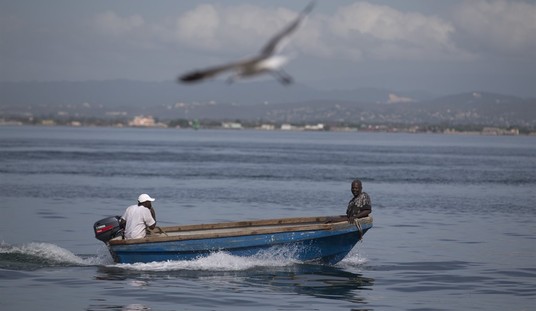As we reported earlier today, tensions between Russia and Turkey are heating up — fast. Last month, Turkey took down a Russian jet flying over Syria and, Ankara says, Turkey. Ever since, the autocratic rulers of both countries have been at loggerheads.
Russian President Vladimir Putin’s initial reaction was to implement sanctions against Turkey in an attempt to hurt its economy. Next he accused the Turks of secretly funding ISIS by buying its oil. His third step to intimidate Turkey became clear today: surrounding the country with an impressive Russian military presence.
Although Turkey initially tried to reach out to Putin, the Islamist-led government gradually came to realize that the Russian leader is not to be easily placated. As a result, Turkish President Recep Tayyip Erdoğan launched a PR campaign of his own, among other things accusing Russia and Syrian dictator Bashar al-Assad of buying oil from ISIS. He also contacted other countries, such as Azerbaijan and Qatar, in an attempt to purchase more natural gas from them, which would make Turkey less dependent on Russia.
Today, Turkish Prime Minister Ahmet Davutoğlu joined this war of words by declaring that Russia is carrying out an “ethnic cleansing” in Latakia, in northern Syria. As he told members of the international media in Istanbul:
Russia is trying to carry out an ethnic cleansing in northern Latakia to force out all Turkmen and the Sunni population who do not have good relations with the regime. They want to expel them, they want to ethnically cleanse this area so that the regime and Russian bases in Latakia and Tartus are protected.
To Turks, this is about more than geopolitics and raw power; they consider Turkmen brother-peoples.
The Turkmens are ethnic kin of the Turks and Ankara has been particularly angered by what it says is Russian targeting of them in Syria. Davutoglu said Russian bombing around Azaz, also in northwest Syria, was designed to cut supply lines to Syrian groups opposed to Assad, Moscow’s ally, and ultimately to benefit Islamic State militants.
Although this battle became personal for Putin when Turkey shot down one of his jets, it had long been that way for the Turks. Ethnicity plays an important role in Turkish culture and history. Turkish voters won’t look kindly upon any government that lets their “brothers” in any part of the world be driven from their homes, as is currently happening to Syria’s Turkmen.
As such, Turkey may very well decide to up its presence in Syria and Iraq, even if it increases the likelihood of further confrontation with Russia. Even if they don’t wish to, Davutoğlu and Erdoğan may be forced to do so by public opinion: nationalist voters are an important element of the ruling party’s base, and they can’t let these voters down.









Join the conversation as a VIP Member